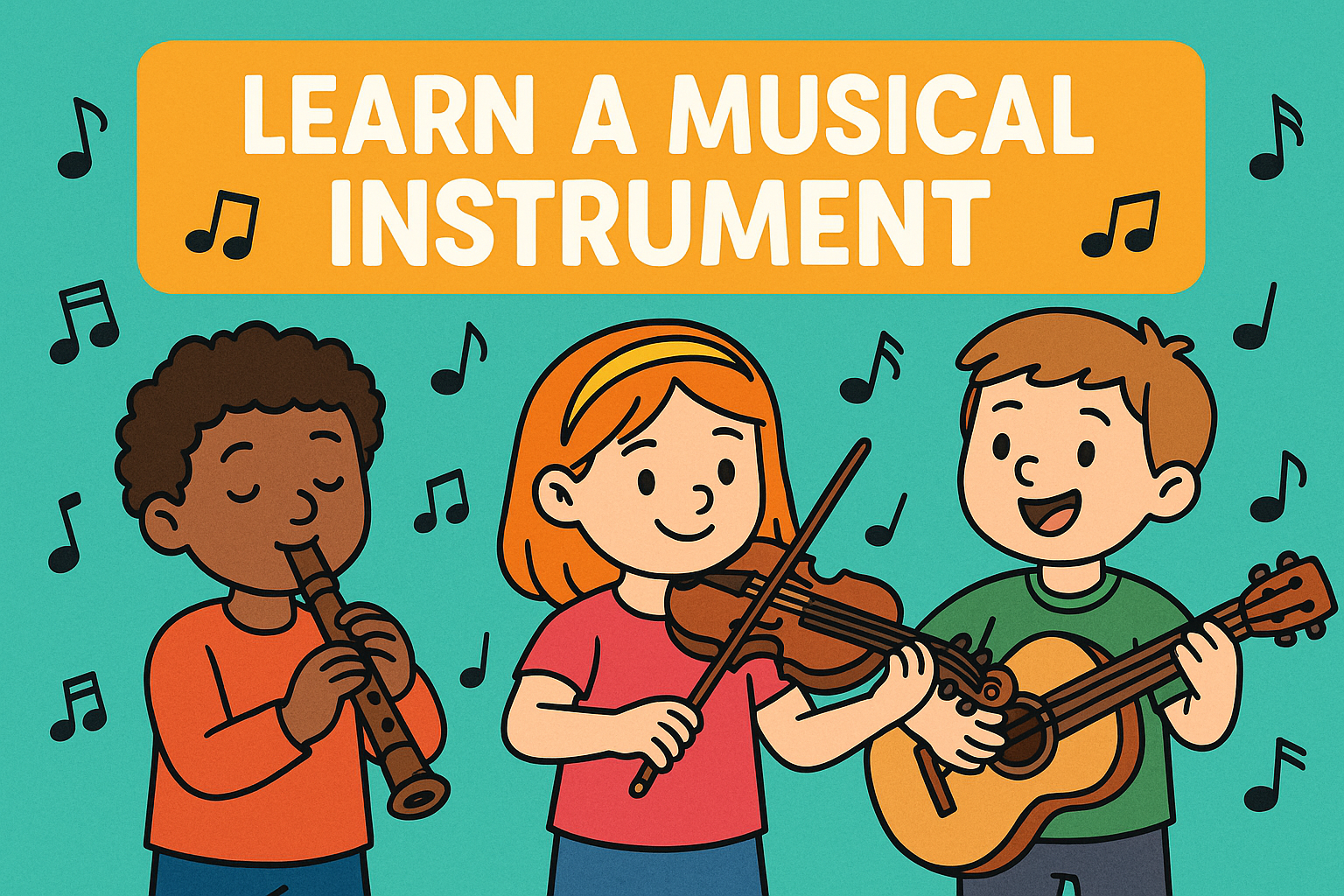Learning a musical instrument is a fantastic way for children to express themselves, develop discipline, and build confidence.
Whether it’s a recorder, keyboard, ukulele or violin, there are options for all ages and budgets — and many instruments can be explored in fun, informal ways before committing to formal lessons.
Children often start with short, playful sessions and grow their skills over time. Practising regularly at home can become part of the weekly routine, and many schools or community centres offer affordable group or individual lessons.
Why It’s Great
- Creativity & Expression – Encourages musical play and personal interpretation.
- Focus & Patience – Helps children develop concentration and persistence over time.
- Fine Motor Skills – Supports coordination, dexterity and timing.
- Confidence Boost – Performing or sharing music builds self-esteem and pride in progress.
How to Get Started
- Try beginner-friendly instruments like keyboard, recorder, ukulele or percussion to start.
- Look for local music tutors, school-run music clubs, or online group classes for children.
- Some music shops offer rental schemes or second-hand options for trying an instrument affordably.
- Start with short sessions — even 10–15 minutes of fun practice can make a big difference.
We loved using the Simply Piano app; it’s not technically “offline” or “screen-free” but a really fun way to learn piano.
Variations
- Group Lessons: Often more social, fun and cost-effective for beginners.
- Play-Along Apps: Many free and paid apps support practice through games and interactive songs.
- Informal Jamming: Encourage children to explore sound freely before starting lessons.
Safety Tips
- Use child-sized instruments where possible to avoid strain or discomfort.
- Encourage regular breaks during practice to prevent fatigue or tension.
- For beginners, focus on enjoyment over perfection — a relaxed start fosters long-term engagement.


Leave a Reply